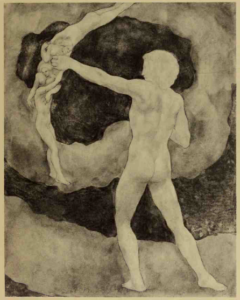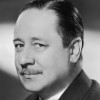Parents lend children their experience and a vicarious memory; children endow their parents with a vicarious immortality.
George Santayana (1863-1952) Spanish-American poet and philosopher [Jorge Agustín Nicolás Ruíz de Santayana y Borrás]
The Life of Reason, “Reason in Society,” ch. 2 “The Family” (1905-06)
(Source)
Quotations about:
family
Note not all quotations have been tagged, so Search may find additional quotes on this topic.
Perhaps the greatest rudenesses of our time come not from the callousness of strangers, but from the solicitousness of intimates who believe that their frank criticisms are always welcome, and who feel free to “be themselves” with those they love, which turns out to mean being their worst selves, while saving their best behavior for strangers.
Judith Martin (b. 1938) American author, journalist, etiquette expert [a.k.a. Miss Manners]
Common Courtesy, “Those Who Would Change the Country’s Manners Encounter Citizen Resistance” (1985)
(Source)
Love should be the vestal fire of some mighty temple — some vast dim fane whose organ music is the rolling of the spheres. Affection will burn cheerily when the white flame of love is flickered out. Affection is a fire that can be fed from day to day, and be piled up ever higher as the winter years draw nigh. Old men and women can sit by it with their thin hands clasped, the little children can nestle down in front, the friend and neighbour has his welcome corner by its side, and even shaggy Fido and sleek Titty can toast their noses at the bars.
Let us heap the coals of kindness upon that fire. Throw on your pleasant words, your gentle pressures of the hand, your thoughtful and unselfish deeds. Fan it with good humour, patience, and forbearance. You can let the wind blow and the rain fall unheeded then, for your hearth will be warm and bright, and the faces round it will make sunshine in spite of the clouds without.Jerome K. Jerome (1859-1927) English writer, humorist [Jerome Klapka Jerome]
Idle Thoughts of an Idle Fellow, “On Being in Love” (1886)
(Source)
You are the bows from which your children as living arrows are sent forth.
The Archer sees the mark upon the path of the infinite, and He bends you with His might that His arrows may go swift and far.
Let your bending in the Archer’s hand be for gladness;
For even as He loves the arrow that flies, so He loves also the bow that is stable.Kahlil Gibran (1883-1931) Lebanese-American poet, writer, painter [Gibran Khalil Gibran]
“On Children,” The Prophet (1923)
(Source)
“If Mr. Darcy is neither by honour nor inclination confined to his cousin, why is not he to make another choice? And if I am that choice, why may not I accept him?”
“Because honour, decorum, prudence, nay, interest, forbid it. Yes, Miss Bennet, interest; for do not expect to be noticed by his family or friends, if you wilfully act against the inclinations of all. You will be censured, slighted, and despised, by everyone connected with him. Your alliance will be a disgrace; your name will never even be mentioned by any of us.”
“These are heavy misfortunes,” replied Elizabeth. “But the wife of Mr. Darcy must have such extraordinary sources of happiness necessarily attached to her situation, that she could, upon the whole, have no cause to repine.”Jane Austen (1775-1817) English author
Pride and Prejudice, ch. 56 [Elizabeth and Lady Catherine] (1813)
(Source)
The superstition into which we’re born,
Even when we recognize it, loses not
Its power on us! Not all those are free
Who ridicule their chains.[Der Aberglaub’, in dem wir aufgewachsen,
Verliert, auch wenn wir ihn erkennen, darum
Doch seine Macht nicht über uns. — Es sind
Nicht alle frei, die ihrer Ketten spotten.]Gotthold Lessing (1729-1781) German playwright, philosopher, dramaturg, writer
Nathan the Wise [Nathan der Weise], Act 4, sc. 4 [Templar] (1779) [tr. Corbett (1883)]
(Source)
(Source (German)). Alternate translations:
Yet the superstition
in which we have grown up, not therefore loses
when we detect it, all its influence on us.
Not all are free that can bemock their fetters.
[tr. Taylor (1790)]
The superstition in which we grew up,
Does not cease influencing us, e'en after
We have discover'd its absurdity.
Not all are free who do bemock their fetters.
[tr. Reich (1860)]
The superstition in which we were brought up never loses its power over us, even after we understand it.
[Source (1866)]
And yet the superstitions we have learned
From education, do not lose their power
When we have found them out; nor are all free
Whose judgment mocks the galling chains they wear.
[tr. Boylan (1878)]
The superstition in which we have grown up
Does not lose (even if we see through it)
Its power on us, on that account;
All are not free who mock their chains.
[tr. Jacks (1894)]
The superstitions of our early years,
E'en when we know them to be nothing more,
Lose not for that their hold upon our hearts;
Not all are free who ridicule their chains.
[tr. Maxwell (1917)]
The superstition in which we have grown up does not lose its power over us even for the reason that we recognize it as such. Not all are free who mock their chains.
[tr. Reinhardt (1950)]
The superstition in which we grew up,
Though we may recognize it, does not lose
Its power over us -- Not all are free
Who make mock of their chains.
[tr. Morgan (1955)]
Merely because we see the defects of the superstition we grew up in, it doesn't lose its hold upon our souls! Those men who mock their chains are not all free!
[tr. Ade (1972)]
Not sweet son, nor revered old father, nor
The long-due love which was to have made glad
Penelope for all the pain she bore,
Could conquer the inward hunger that I had
To master earth’s experience, and to attain
Knowledge of man’s mind, both the good and bad.[Né dolcezza di figlio, né la pieta
del vecchio padre, né ‘l debito amore
lo qual dovea Penelopé far lieta,
vincer potero dentro a me l’ardore
ch’i’ ebbi a divenir del mondo esperto,
e de li vizi umani e del valore.]Dante Alighieri (1265-1321) Italian poet
The Divine Comedy [Divina Commedia], Book 1 “Inferno,” Canto 26, l. 94ff (26.94-99) [Ulysses] (1309) [tr. Binyon (1943)]
(Source)
Ulysses, explaining why he chose to continue exploring over filial piety, leading to his eventual death.
(Source (Italian)). Alternate translations:
Not the sweet fondness for a Son, nor yet
The pious duty for an ancient Sire,
Nor all the love I ow'd Penelope,
That ardor could subdue which me possest,
In distant climes experience to learn,
And human Vices as well as Virtues know.
[tr. Rogers (1782), l. 90ff]
Yet, after all my toils, nor aged sire,
Nor son, nor spouse, could check the wild desire
Again to tempt the feat, with vent'rous oar.
In search of same I measur'd various climes,
Still vers'd in deeper frauds and nameless crimes,
With slender band, and solitary sail.
[tr. Boyd (1802), st. 16-17]
Nor fondness for my son, nor reverence
Of my old father, nor return of love,
That should have crown’d Penelope with joy,
Could overcome in me the zeal I had
T’ explore the world, and search the ways of life,
Man’s evil and his virtue.
[tr. Cary (1814)]
That name; nor sweet remembrance of my boy,
Nor old Laertes' grief, nor debt of love,
Which owed Penelope the arrear of joy,
Could quench my burning zeal, that inly strove,
And bade the wisdom of the world explore.
And human vices, human worth to prove.
[tr. Dayman (1843)]
Neither fondness for my son, nor reverence for my aged father, nor the due love that should have cheered Penelope,
could conquer in me the ardour that I had to gain experience of the world, and of human vice and worth.
[tr. Carlyle (1849)]
Nor sweetness of my son, nor piety
For aged father, nor arrear of love
To glad Penelope, my mind could move,
Could conquer yet the ardour in my breast
In the worldly wisdom to become expert --
In every virtue, and in every art.
[tr. Bannerman (1850)]
My son's sweet ways, the sacred duty claim'd
By my old father, nor that debt of love
Due to Penelope, her source of joy,
Could conquer in my soul the burning thirst
To see and know the deep things of the world,
To study human worth and human vice.
[tr. Johnston (1867)]
Nor fondness for my son, nor reverence
For my old father, nor the due affection
Which joyous should have made Penelope,
Could overcome within me the desire
I had to be experienced of the world,
And of the vice and virtue of mankind.
[tr. Longfellow (1867)]
Neither the sweetness of my son, nor my affection for my old father, nor the due love which ought to have made Penelope happy, could conquer within me the ardour which I had to become experienced in the world, and in the vices of men and in their goodness.
[tr. Butler (1885)]
Not my son's sweetness, nor compassionate fear
For my old father, nor the lawful love
That should have cheered Penelope so dear.
Could from my mind the ardent wish remove
Of the wide world experience to attain,
And human vices and man's worth to prove.
[tr. Minchin (1885)]
Neither fondness for my son, nor piety for my old father, nor the due love that should have made Penelope glad, could overcome within me the ardor that I had to gain experience of the world, and of the vices of men, and of their valor.
[tr. Norton (1892)]
Neither affection for my boy, nor reverence for an aged sire, nor even the debt of love that should have filled Penelope with gladness, had power to quell within me the yearning I had nourished to win experience of the world, men's vices and their worth.
[tr. Sullivan (1893)]
Nor sweetness of my son, nor filial duty
To my old father, nor the love I owed her
That should have made Penelope still happy.
Could overcome within my breast the ardour
I had to win experience world-embracing,
As well of human vices as of virtue
[tr. Griffith (1908)]
Not fondness for a son, nor duty to an aged father, nor the love I owed Penelope which should have gladdened her, could conquer within me the passion I had to gain experience of the world and of the vices and the worth of men.
[tr. Sinclair (1939)]
No tenderness for my son, nor piety
To my old father, nor the wedded love
That should have comforted Penelope
Could conquer in me the restless itch to rove
And rummage through the world exploring it,
All human worth and wickedness to prove.
[tr. Sayers (1949)]
Not fondness for my son, nor reverence
for my aged father, nor Penelope's claim
To the joys of love, could drive out of my mind
the lust to experience the far-flung world
and the failings and felicities of mankind.
[tr. Ciardi (1954), l. 89ff]
Neither fondness for my son, nor reverence for my aged father, nor the due love which would have made Penelope glad, could conquer in me the longing that I had to gain experience of the world, and of human vice and worth.
[tr. Singleton (1970)]
Not sweetness of a son, not reverence
for an aging father, not the debt of love
I owed Penelope to make her happy,
could quench deep in myself the burning wish
to know the world and have experience
of all man's vices, of all human worth.
[tr. Musa (1971)]
Neither my fondness for my son nor pity
for my old father nor the love I owed
Penelope, which would have gladdened her,
was able to defeat in me the longing
I had to gain experience of the world
and of the vices and the worth of men.
[tr. Mandelbaum (1980)]
Neither affection for my son, nor duty
To my old father, nor the proper love
Which should have given Penelope happiness,
Could overcome, within me, the desire
I had to have experience of the world,
And of the vices and virtues of mankind.
[tr. Sisson (1981)]
Not fondness for my son, nor any claim
Of reverence for my father, nor love I owed
Penelope, to please her, could overcome
My longing for experience of the world,
Of human vices and virtue.
[tr. Pinsky (1994), l. 91ff]
Neither the sweetness of a son, nor compassion for my old father, nor the love owed to Penelope, which should have made her glad,
could conquer within me the ardor that I had to gain experience of the world and of human vices and worth.
[tr. Durling (1996)]
Not even my fondness for my son, Telemachus, my reverence for my aged father, Laërtes, nor the debt of love that should have made Penelope happy, could restrain in me the desire I had, to gain experience of the world, and of human vice and worth.
[tr. Kline (2002)]
No tenderness for son, no duty owed
to ageing fatherhood, no love that should
have brought my wife Penelope delight,
could overcome in me my long desire,
burning to understand how this world works,
and know of human vices, worth and valour.
[tr. Kirkpatrick (2006)]
Not tenderness for a son, nor filial duty
toward my agèd father, nor the love I owed
Penelope that would have made her glad,
could overcome the fervor that was mine
to gain experience of the world
and learn about man's vices, and his worth.
[tr. Hollander/Hollander (2007)]
For my young son's sweetness, or any concern
About my aged father, or the debt of love
I owed Penelope, which would have pleased her,
For nothing could conquer in me the craving to know
This world wee live in, learning its nature, and how
To deal with either human vice or worth.
[tr. Raffel (2010)]
No love for my son,
No duty to my father, and what's more
No love I owed Penelope -- the one
Who would have been most glad -- could overcome
In me the passion that I had, to gain
Experience of the world, and know the sum
Of virtue, pleasure, wisdom, vice, and pain.
[tr. James (2013), l. 105ff]
Children in a family are like flowers in a bouquet: there’s always one determined to face in an opposite direction from the way the arranger desires.
Marcelene Cox (1900-1998) American writer, columnist, aphorist
“Ask Any Woman” column, Ladies’ Home Journal (1956-09)
(Source)
CORIOLANUS:I’ll never
Be such a gosling to obey instinct; but stand,
As if a man were author of himself,
And knew no other kin.William Shakespeare (1564-1616) English dramatist and poet
Coriolanus, Act 5, sc. 3, l. 38ff (5.3.38-41) (c. 1608)
(Source)
What television does is rent us friends and relatives who are quite satisfactory. The child watching TV loves these people, you know — they’re in color, and they’re talking to the child. Why wouldn’t a child relate to these people? And you know, if you can’t sleep at 3 o’clock in the morning, you can turn on a switch, and there are your friends and relatives, and they obviously like you. And they’re charming. Who wouldn’t want Peter Jennings for a relative? This is quite something, to rent artificial friends and relatives right inside the house.
Kurt Vonnegut, Jr. (1922-2007) American novelist, journalist
“The Salon Interview: Kurt Vonnegut,” interview by Frank Houston, Salon (8 Oct 1999)
(Source)
The gifts and the lessons my father left me will last forever: Never take yourself too seriously, never miss a chance to laugh long and hard, speak out about political and social issues you believe in, use the written word as often as you can to make yourself and the world a better place, and love your children with all you’ve got.
Rod Serling (1924-1975) American screenwriter, playwright, television producer, narrator
Paraphrase of Rod Serling in Anne Serling, As I Knew Him: My Dad, Rod Serling, Epilogue (2013)
(Source)
I discovered that I don’t nearly have the fear of death that I once had. What I do have is the terrible awareness of how little time there is to accomplish so many of the things that you want to accomplish. The other thing that seems accentuated, almost to a point of distortion, is the need, the desperate need you have of family, of loved ones. When it appeared possible I might not make it, I didn’t feel so much the awful awareness of, Jesus Christ, it’s going to be me ending the earth. What seemed to me the most predominant in my fears was that it would be the relationships that would end.
Rod Serling (1924-1975) American screenwriter, playwright, television producer, narrator
Audio diary (1975-05)
(Source)
Recorded comments in the hospital after his first heart attack. In Anne Serling, As I Knew Him: My Dad, Rod Serling (2013).
Remind them that the sword still hangs upon the wall and the heart still beats within the man, and that that sword will be unsheathed again, if necessary, in defense of your rights. Given them to understand that you will not stand patiently by and see your hard earnings squandered by a luxuriating class of idlers. If the American manhood will arouse itself and speak to those fellows in plain language, not to be misunderstood, they can save themselves, their country and their children, from the fate of poverty which awaits them. Will you do it?
Lucy Parsons (1851-1942) American labor organizer, anarchist, orator [a.k.a. Lucy Gonzalez]
“Wage Slaves vs. Corporations,” The Liberator (24 Sep 1905)
(Source)
For that is an absurd position which is taken by some people, who say that they will not rob a parent or a brother for their own gain, but that their relation to the rest of their fellow-citizens is quite another thing. Such people contend in essence that they are bound to their fellow-citizens by no mutual obligations, social ties, or common interests. This attitude demolishes the whole structure of civil society.
[Nam illud quidem absurdum est, quod quidam dicunt, parenti se aut fratri nihil detracturos sui commodi causa, aliam rationem esse civium reliquorum. Hi sibi nihil iuris, nullam societatem communis utilitatis causa statuunt esse cum civibus, quae sententia omnem societatem distrahit civitatis.]
Marcus Tullius Cicero (106-43 BC) Roman orator, statesman, philosopher
De Officiis [On Duties; On Moral Duty; The Offices], Book 3, ch. 6 (3.6) / sec. 28 (44 BC) [tr. Miller (1913)]
(Source)
(Source (Latin)). Alternate translation:
For as to what is usually said by some men, that they would not take anything away from a father or brother for their own advantage, but that there is not the same reason for their ordinary citizens, it is foolish and absurd: for they thrust themselves out from partaking of any privileges, and from joining in common with the rest of their citizens, for the public good; an opinion that strikes at the very root and foundation of all civil societies.
[tr. Cockman (1699)]
That indeed is absurd, which some men avow, that for their own advantage they would take nothing from a parent or a brother; but that the case of other citizens is different. These men, stablish with their fellow-citizens no common right, no society for common advantage; an opinion that unhinges the whole internal intercourse of a state.
[tr. McCartney (1798)]
For that which some say, that they would take nothing wrongfully, for the sake of their own advantage, from a parent or brother, but that the case is different with other citizens, is indeed absurd. These establish the principle that they have nothing in the way of right, no society with their fellow citizens, for the sake fo the common interest -- an option which tears asunder the whole social compact.
[tr. Edmonds (1865)]
For this is absurd indeed which some say, that they would take nothing from a parent or a brother for their own benefit, but that it is quite another thing with persons outside of one’s own family. These men disclaim all mutual right and partnership with their fellow-citizens for the common benefit, -- a state of feeling which dismembers the fellowship of the community.
[tr. Peabody (1883)]
It is absurd for people to say that they will not despoil a father or a brother for their own advantage but that fellow-citizens stand on quite a different footing. That is practically to assert that they are bound to their fellow-citizens neither by mutual obligations, social ties, nor common interests. But such a theory tears in pieces the whole fabric of civil society.
[tr. Gardiner (1899)]
The contention that some people advance is absurd, of course: they argue that they would not deprive a parent or brother of anything for their own advantage but that there is another standard applicable to all other citizens. These people do not submit themselves to any law or to any obligation to cooperate with fellow citizens for the common benefit. Their attitude destroys any cooperation within the city.
[tr. Edinger (1974)]
A well-born man is fortunate, but so is the man about whom people no longer ask, is he well-born?
[S’il est heureux d’avoir de la naissance, il ne l’est pas moins d’être tel qu’on ne s’informe plus si vous en avez.]
Jean de La Bruyère (1645-1696) French essayist, moralist
The Characters [Les Caractères], ch. 2 “Of Personal Merit [Du Mérite Personnel],” § 21 (2.21) (1688) [tr. Stewart (1970)]
(Source)
(Source (French)). Alternate translations:
If 'tis a happiness to be nobly Descended, 'tis no less to have so much Merit, that our Birth is the least thing considered in us.
[Bullord ed. (1696)]
If it is a Happiness to be nobly Descended, it is not less to have so much Merit, that no body enquires whether we are so or no.
[Browne ed. (1752)]
If it be a happiness to be of noble parentage, it is no less so to possess so much merit that nobody inquires whether we are noble or plebeian.
[tr. Van Laun (1885)]
It is a happiness to be nobly descended; it is not a lesser happiness to have so much merit that nobody enquires whether you are so or not.
[tr. Lee (1903), "Brief Reflexions on Men and Things"]
For five days last week, the White House and its Capitol Hill allies did urgent battle against what they perceive, or say they perceive, as an attack on the institution of marriage. It’s a strange sort of attack, to be sure: a wonderfully pacific attack, a supportive attack, an attack without the slightest intention or capacity to cause harm, consisting, as it does, of the earnest wish of certain loving couples to join themselves to that very institution and thus to feel themselves, and be accepted as, full members of the American (and human) family.
Hendrik Hertzberg (b. 1943) American journalist, editor, speech writer, political commentator
“Distraction,” The New Yorker (19 Jun 2006)
(Source)
On a push by Republicans for a Constitutional Amendment banning same-sex marriage.
“I am going to tell you something Benedict should have told you long ago,” I said. “Never trust a relative. It is far worse than trusting strangers. With a stranger there is a possibility that you might be safe.”
“You really mean that, don’t you?”
“Yes.”
“Yourself included?”
I smiled. “Of course it does not apply to me. I am the soul of honor, kindness, mercy, and goodness. Trust me in all things.”
Welcome, Christmas, bring your cheer.
Cheer to all Whos far and near.
Christmas Day is in our grasp,
so long as we have hands to clasp.
Christmas Day will always be
just as long as we have we.
Welcome Christmas while we stand,
heart to heart, and hand in hand.Dr. Seuss (1904-1991) American author, illustrator [pseud. of Theodor Geisel]
How the Grinch Stole Christmas!, TV special, final lines [Narrator] (1966) [with Irv Spector, Bob Ogle, Eugene Poddany]
(Source)
This phrase was from the 1966 animated special; it does not appear in the original 1957 book. It is unclear who actually wrote the words to the song, but "Dr. Seuss" is sually credited. The words are also embedded in the Whos' "Welcome Christmas" song. The narration was performed by Boris Karloff.
The last four lines are often paraphrased down to "Christmas will always be as long as we stand heart to heart and hand in hand."
To go from being a competent writer to being a great writer, I think you have to risk being — or risk being seen as — a bad writer. Competence is deadly because it prevents the writer risking the humiliation that they will need to risk before they pass beyond competence. To write competently is to do a few magic tricks for friends and family; to write well is to run away to join the circus. Your friends and family will love your tricks, because they love you. But try busking those tricks on the street. Try busking them alongside a magician who has been doing it for 10 years, earning their living. When they are watching a magician, people don’t want to say, “Well done.” They want to say, “Wow.”
Toby Litt (b. 1968) English writer and academic
“What makes bad writing bad?” The Guardian (20 May 2016)
(Source)
Now and in the time to be, try to be kind to your parents. If this sounds too close to “Honor thy mother and father” for your comfort, so be it. All I am trying to say is try not to rebel against them, for, in all likelihood, they will die before you do, so you can spare yourselves at least this source of guilt if not of grief. If you must rebel, rebel against those who are not so easily hurt. Parents are too close a target (so, by the way, are sisters, brothers, wives or husbands); the range is such that you can’t miss.
Joseph Brodsky (1940-1996) Russian-American poet, essayist, Nobel laureate, US Poet Laureate [Iosif Aleksandrovič Brodskij]
“Speech at the Stadium,” Commencement Address, University of Michigan (18 Dec 1988)
(Source)
These women were fatuous with a fatuity which had threatened her all her life, as it threatened all people of means, and which was of mournful significance for humanity in general, since it proved the emptiness of one of man’s most reasonable expectations. No more sensible form of government could be imagined than aristocracy. If certain able stocks in the community were able to amass enough wealth to give their descendants beautiful houses to grow up in, the widest opportunities of education, complete economic security, so that they need never be influenced by mercenary considerations, and easy access to any public form of work they chose to undertake — why, then, the community had a race of perfect governors ready made.
Only, as the Lauristons showed, the process worked out wholly different in practice. There came to these selected stocks a deadly, ungrateful complacence, which made them count these opportunities as their achievements, and belittle everybody else’s achievements unless they were similarly confused with opportunities; and which did worse than this, by abolishing all standards from their minds except what they themselves were and did.
CHARLIE ANDERSON: I’m not going to kill you. I want you to live. I want you to live to be an old man, and I want you to have many, many, many children, and I want you to feel about your children then the way I feel about mine now. And someday, when a man comes along and kills one of ’em, I want you to remember! Okay? I want you to remember.
There is no happiness in life, there is no misery, like that growing out of the dispositions which consecrate or desecrate a home.
You can never leave home. You take it with you no matter where you go. Home is between your teeth, under your fingernails, in the hair follicles, in your smile, in the ride of your hips, in the passage of your breasts.
Maya Angelou (1928-2014) American poet, memoirist, activist [b. Marguerite Ann Johnson]
“The Art of Fiction,” Paris Review, #116, Interview with George Plimpton (1990)
(Source)
Every marriage is a battle between two families struggling to reproduce themselves.
Carl Whitaker (1912-1995) American physician, psychotherapist, family therapist
(Attributed)
(Source)
Quoted in his obituary.
Absence is one of the most useful ingredients of family life, and to do it rightly is an art like any other.
Freya Stark (1893-1993) Franco-British explorer, travel writer [Freya Madeline Stark]
The Freya Stark Story (1953)
(Source)
Rupert had never forgiven his mother for continuing to have children once she had achieved the heights of human creation by giving birth to Rupert.
Kerry Greenwood (b. 1954) Australian author and lawyer
Death at Victoria Dock, ch. 8 (1992)
(Source)
Alcoholism isn’t a spectator sport. Eventually the whole family gets to play.
Joyce Rebeta-Burditt (b. 1938) American writer, television producer
The Cracker Factory, ch. 15 (1977)
(Source)
Man has three friends on whose company he relies. First, wealth — which goes with him only while good fortune lasts. Second, his relatives — they go only as far as the grave and leave him there. The third friend, his good deeds, go with him beyond the grave.
The Talmud (AD 200-500) Collection of Jewish rabbinical writings
(Attributed)
I could not find an actual citation for this quotation, but the story (the explanation of a parable, in which a man is summoned before a king, and while his dearest friend will not go with him, and his second best friend will only go to the palace gates, his least-loved friend goes with him before the throne) shows up with different translation in multiple sources:
- The Talmud: Selections, Part 5 "Civil and Criminal Laws -- the Holy Days" - "The Day of Atonement" [tr. Polano (1876)].
- Isaac Aboav, Lamp of Light [Menorat Hamoar] [14th C], Fifth Lamp "Teshuvah," Sec. 2 [ch. 3] in Leonard Kravitz and Kerry Olitzky, <i>Journey of the Soul: Traditional Sources on the</i> Teshuvah (1995).
- Talmudic and Other Legends [tr., comp. Weiss (1888 ed.), "Man's Three Friends" (Pirke R. Eliezer).
The grandest of heroic deeds are those which are performed within four walls and in domestic privacy.
We believe we must be the family of America, recognizing that at the heart of the matter we are bound one to another, that the problems of a retired school teacher in Duluth are our problems; that the future of the child in Buffalo is our future; that the struggle of a disabled man in Boston to survive and live decently is our struggle; that the hunger of a woman in Little Rock is our hunger; that the failure anywhere to provide what reasonably we might, to avoid pain, is our failure.
Mario Cuomo (1932-2015) American politician
Keynote Address, Democratic National Convention (16 Jul 1984)
(Source)
The school is an invaluable adjunct to the home, but it is a wretched substitute for it.
Theodore Roosevelt (1858-1919) American politician, statesman, conservationist, writer, US President (1901-1909)
Speech, Lansing, Michigan (31 May 1907)
(Source)
This family has no outsiders. Everyone is an insider. When Jesus said, “I, if I am lifted up, will draw …” Did he say, “I will draw some”? “I will draw some, and tough luck for the others”? He said, “I, if I be lifted up, will draw all.” All! All! All! — Black, white, yellow; rich, poor; clever, not so clever; beautiful, not so beautiful. All! All! It is radical. All! Saddam Hussein, Osama bin Laden, Bush — all! All! All are to be held in this incredible embrace. Gay, lesbian, so-called “straight;” all! All! All are to be held in the incredible embrace of the love that won’t let us go.
Desmond Tutu (1931-2021) South African cleric, Anglican Archbishop of Cape Town, Nobel Laureate
“And God Smiles,” Sermon, All Saints Church, Pasadena, California (6 Nov 2005)
The Bible passage referenced is John 12:32.
It is far more important to love your wife than to love God, and I will tell you why. You cannot help him, but you can help her. You can fill her life with the perfume of perpetual joy. It is far more important that you love your children than that you love Jesus Christ. And why? If he is God you cannot help him, but you can plant a little flower of happiness in every footstep of the child, from the cradle until you die in that child’s arms. Let me tell you to-day it is far more important to build a home than to erect a church. The holiest temple beneath the stars is a home that love has built. And the holiest altar in all the wide world is the fireside around which gather father and mother and the sweet babes.
ARISTOCRAT: Who is that ugly woman who just came in?
LORD NORTH: Oh, that is my wife.
ARISTOCRAT: Sir, I beg your pardon. I do not mean her. I mean that shocking monster who is along with her.
LORD NORTH: That is my daughter.Frederick North (1732-1792) British Prime Minister (1770-82) [Lord North]
(Attributed)
MALCOLM: Wife and child,
Those precious motives, those strong knots of love.William Shakespeare (1564-1616) English dramatist and poet
Macbeth, Act 4, sc. 3, l. 33ff (4.3.33-34) (1606)
(Source)
To let a sudden fit of anger make you forget the dangers you risk for yourself and for those who are nearest and dearest to you — is this not clouded judgment?
[A. 一朝之忿、忘其身以及其親、非惑與。]
[B. 一朝之忿忘其身以及其亲非惑与]
Confucius (c. 551- c. 479 BC) Chinese philosopher, sage, politician [孔夫子 (Kǒng Fūzǐ, K'ung Fu-tzu, K'ung Fu Tse), 孔子 (Kǒngzǐ, Chungni), 孔丘 (Kǒng Qiū, K'ung Ch'iu)]
The Analects [論語, 论语, Lúnyǔ], Book 12, verse 21 (12.21) (6th C. BC – AD 3rd C.) [tr. Chin (2014)]
(Source)
Waley suggests the internal rhymes in both the questions in 12.21 and this particular answer mean they are quotations from an outside source, a "didactic poem," and thus carry additional meaning now lost.
(Source (Chinese) A, B). Alternate translations:
For a morning's anger to disregard one's own life, and involve that of his parents; -- is not this a case of delusion?
[tr. Legge (1861)]
And as to illusions, is not one morning's fit of anger, causing a man to forget himself, and even involving the consequences those who are near and dear to him -- is not that an illusion?
[tr. Jennings (1895)]
If a man allows himself to lose his temper and forget himself of a morning, in such a way as to become careless for the safety of is own person and for the safety of his parents and friends: -- is that not a case of a great delusion in life?
[tr. Ku Hung-Ming (1898)]
For a morning's anger to forget his own safety and involve that of his relatives, is not this irrational?
[tr. Soothill (1910)]
For one morning’s temper to jeopard one's life and even that of one's relatives, isn’t that hallucination?
[tr. Pound (1933)]
Because of a morning's blind rage to forget one's own safety and even endanger one's kith and kin, is that not a case of divided mind?
[tr. Waley (1938)]
In a moment’s burst of anger to forget oneself and one’s family. Wouldn’t this be utter confusion?
[tr. Ware (1950)]
To let a sudden fit of anger make you forget the safety of your own person or even that of your parents, is that not misguided judgment?
[tr. Lau (1979)]
To be oblivious of one's own person and even of one's own parents all because of a morning's anger -- is this not a confusion?
[tr. Dawson (1993)]
To endanger oneself and one's kin in a sudden fit of anger: is this not an instance of incoherence?
[tr. Leys (1997)]
In a fit of rage, you forget yourself and even your parents -- is that not delusion?
[tr. Huang (1997)]
If one has any anger so that one forgets one's pro0per behavior to take the anger upon the relatives, is not one confused?
[tr. Cai/Yu (1998), #307]
In a moment of rage to forget not only one's own person but even one's parents -- is this not being in a quandary?
[tr. Ames/Rosemont (1998)]
For the anger of a morning, to forget one's self and even one's kin, is that not a contradiction?
[tr. Brooks/Brooks (1998)]
To endanger yourself and your family, all in a morning's blind rage -- is that not delusion?
[tr. Hinton (1998)]
To forget yourself in a moment of anger and thereby bring ruin upon both you and your family -- is this not an example of confusion?
[tr. Slingerland (2003)]
Because of one morning's anger, to forget your own safety and even endanger those close to you -- this is faulty thinking, isn't it?
[tr. Watson (2007)]
If you act out of animus with the consequence of hurting yourelf and yoru loved ones, is that an example of delusion?
[tr. Li (2020)]
A common paraphrase of this is "When anger rises, think of the consequences." This is attributed to Confucius in Kang-Hi (K'ang-hsi, Kangxi) The Sacred Edict, Maxim #16 (1670, 1724) [tr. Milne (1817)]. An alternate translation is "In anger, think of the trouble" [tr. Baller (1892), ch. 16, sec. 15]















































